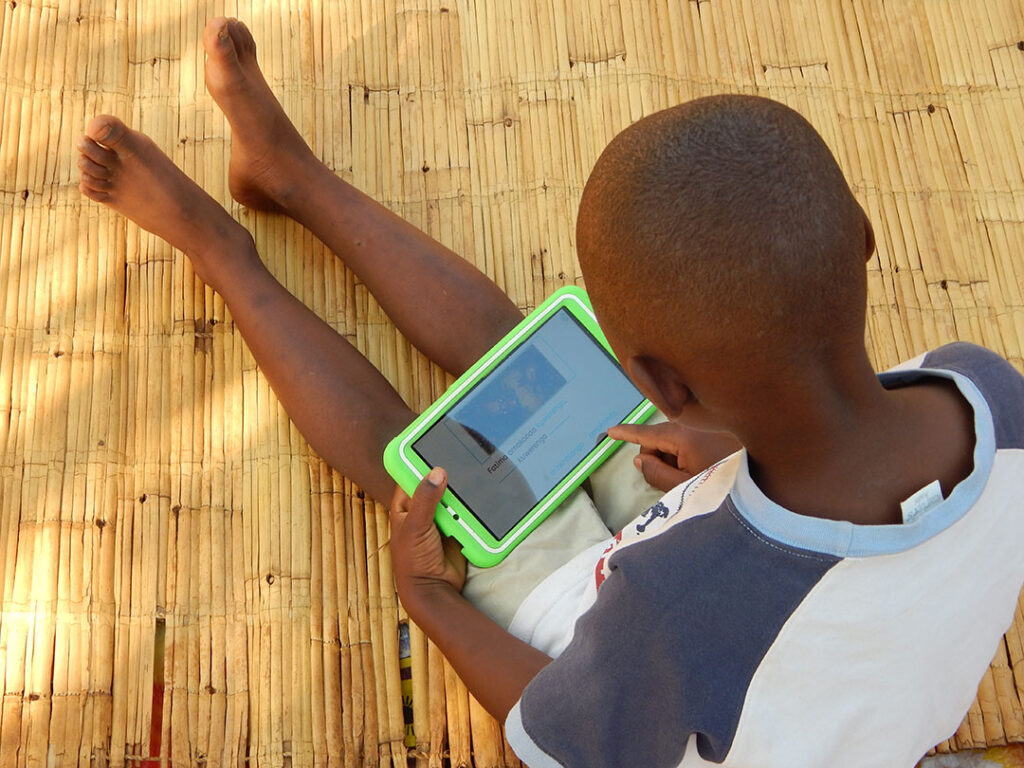ADF STAFF
For many students in Sub-Saharan Africa, learning remotely simply is not possible. About one-third of the population doesn’t have access to a suitable internet connection, according to the World Bank.
The situation agonizes parents and students, but some countries are using satellite technology to ease their educational angst.
In Ghana, the Joy Learning television channel is offering students free educational content that can be accessed by viewers around West Africa through a standard decoder or a TV with a built-in direct-to-home tuner.
The channel is a collaboration of Multimedia Group, an e-learning platform; K-Net, a network service provider; and SES, a network service provider that offers broadcast services and satellite capacity, Africanews reported.
Joy Learning was launched December 30, 2019, almost 10 weeks before the first COVID-19 case was confirmed in Ghana.
Pat-Click Osei Amoah, who attends high school at Accra Academy, said the channel is useful.
“Some of the core subjects, like science, I find them difficult to learn by myself. [The TV channel] helped me a lot,” Pat-Click told the TV channel Joy News. “When I received my exam paper, I was the one who was second in all my classes.”
Ghana’s government also introduced the virtual classroom Ghana Learning TV, accessed through television. Like Joy Learning, the distance-learning platform can be used by students across West Africa.
In Kenya, the education technology program iMlango is helping 180,000 Kenyan students, including 70,000 marginalized girls, in 240 schools learn remotely during the pandemic.
Avanti Communications, an iMlango partner, provides internet connections to primary schools by satellite so students can access an e-learning platform. Camara Education, an international nonprofit, provides refurbished computers, and Whizz Education offers online educational content, according to Africanews.
iMlango also launched a mobile app that can be downloaded onto the phones of parents in remote areas. The app offers digital storybooks, a children’s encyclopedia, access to an interactive math tutor, and educational podcasts related to the e-learning curriculum. The program is offered at primary schools in Kilifi, Kajiado, Makueni and Uasin Gishu counties based on poverty rates, attendance statistics and access to electricity.
During South Africa’s school lockdown, nonprofit Khula Education used satellite broadband to help connect 15 schools in the uMzinyathi district to e-learning facilities. The MorClick and YahClick satellite communications companies sponsored the initiative, which benefited 6,000 students and 200 teachers in rural areas, Africanews reported.
After the lockdown, the 15 schools stayed connected to satellite broadband at a reduced cost split by Khula and the schools. Khula also provided information technology training for educators teaching online courses, while donations to Khula helped provide tablets and laptops to teachers and students.
Introducing digital learning opportunities in uMzinyathi “transformed learning, expanded the capacity to educate, and dramatically improved the quality and effectiveness of teaching, literally, overnight,” Debbie Heustice, director of Khula Education, told Africanews.
But learning during the pandemic remains a struggle for many students on the continent, especially in rural areas.
Elizabeth Ampomah, who attends a junior high school in Tamale, Ghana, said she accesses daily educational content and assignments on her mother’s cellphone. But many of her classmates struggle to learn remotely due to lack of resources.
“A large number of us in my community lack technology such as TV sets, computers, smart phones and other online devices, as well as stable internet and connectivity,” she said in a report on globalpartnership.org. “Some students like me also depend on school to access textbooks and devices, so the closure of schools means many students who have inadequate resources at home are unable to learn.”

